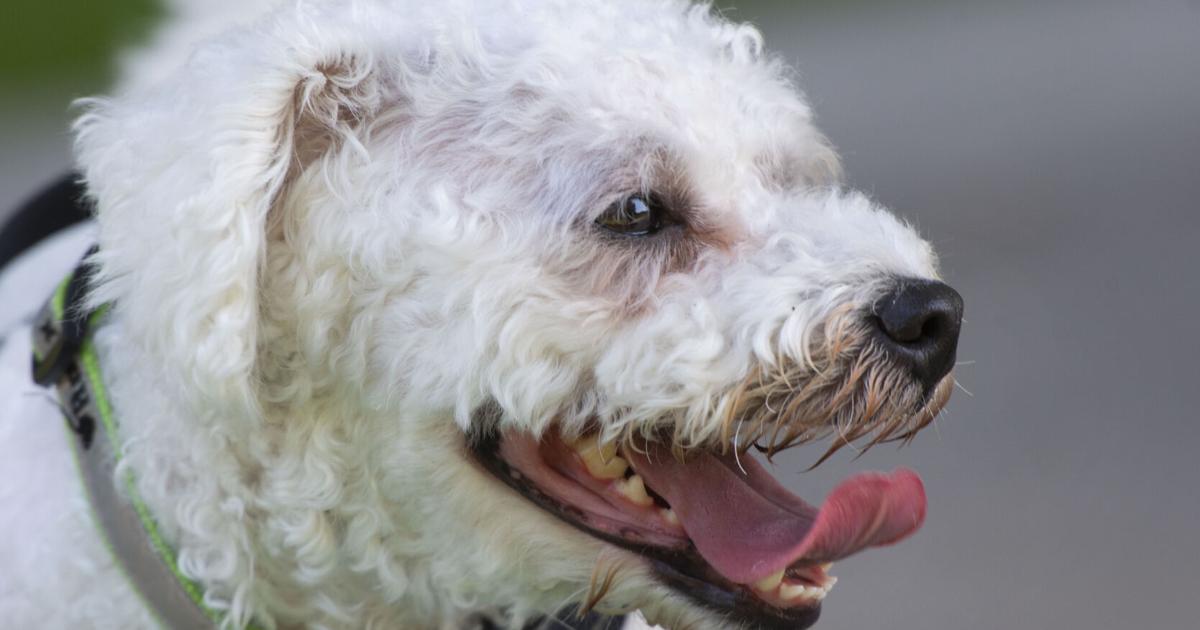
This week may mark the official start of summer, but we are already experiencing record-high temperatures. The summer can be an especially hard time for pets to be outdoors, so it is important to take precautions to protect them from the dangers of excessive heat.
Pets can get dehydrated quickly. They need plenty of fresh, clean water available to them at all times. Pets should have access to shade, should not be over-exercised and should be kept indoors when it’s extremely hot outside.
Some breeds, such as those with flat faces, like shih tzus, pugs, bulldogs and Boston terriers, are more prone to heat stroke since they cannot pant as effectively as other breeds. These types of dogs, older pets, those who are overweight and those with heart or lung diseases should be kept inside, cool and hydrated as much as possible during the hot summer months.
A dog can quickly get overheated. Signs of overheating include:
- Excessive panting or difficulty breathing
- Disorientation
- Increased heart rate
- Excessive drooling
- Weakness
- Collapse or loss of consciousness
- Seizure
- Bloody diarrhea and vomiting
If a dog becomes overheated:
- Move it to a cooler area.
- Offer cool water, but do not force it.
- Wet the dog down with a cool water-soaked towel or in a cool bath.
- Check rectal temperature. A dog’s normal body temperature is 100-102.5 degrees. A rectal temperature above 103 degrees is abnormal and above 106 degrees is dangerous. Monitor the temperature every 10 or so minutes as he is being cooled down.
- Contact a veterinarian immediately to inquire about next steps.
More cool summer tips
LEAVE THE PETS AT HOME: If the dog cannot get out of the car with you at your destination, leave it at home. When temperatures rise outside, they skyrocket inside a vehicle. Pets and children should never be left unattended in a vehicle. Not only can it lead to fatal heat stroke, but it is also illegal in several states.
This is a dangerous situation that can turn deadly in a matter of minutes. Dogs are extremely vulnerable to heat-related illness because they can only cool off by panting and through the pads in their feet. Being left in a car, even one that is parked in the shade or with the windows cracked, can compromise a pet’s health in a short amount of time.
For example, when it is 72 degrees outside, the temperature inside a vehicle can rise to 116 degrees within 20 minutes. Leaving the windows cracked will not help the situation, as studies have shown that this has little effect on a car’s internal temperature.
A dog can only withstand a high body temperature for a short time before suffering nerve damage, heart problems, liver damage, brain damage or even death.
Note: Parking in the shade does not keep the car cooler.
WATER SAFETY APPLIES TO PETS, TOO: Do not leave pets unsupervised around a pool — contrary to popular belief, not all dogs can swim. Introduce pets to water gradually and make sure they wear flotation devices when on a boat. After swimming, dogs should be rinsed off to remove chlorine or salt from the fur. Dogs also should not drink pool water as it contains chlorine and other chemicals.
THE TIMING FOR WALKS IS IMPORTANT: Keep walks to early morning or late evening and avoid walks during the hottest parts of the day. When the temperature is very high, don’t let the pets walk on hot asphalt. Being so close to the ground, a dog’s body can heat up fast and sensitive paw pads can quickly burn.
DON’T SHAVE LONG-HAIRED DOGS: While one may be inclined to trim long-haired dogs during the summer, they should never be shaved because the layers of a dog’s coat protect him from overheating and sunburn. As for felines, brushing cats more often than usual can prevent problems caused by excessive heat.
WATCH OUT FOR HARMFUL PRODUCTS: With the heat comes the summertime bugs and critters. Commonly used rodenticides and insecticides can be harmful to pets if ingested. Keep citronella candles, tiki torch products and insect coils away from pets.
In addition, be sure any sunscreen or insect repellent products used on pets is labeled for animal use, and specifically your animal type. Contact your veterinarian or the ASPCA Animal Poison Control Center at (888) 426-4435 if a pet comes in contact with a poisonous substance.
Events
JUNE 22: A PetSmart dog days of summer adoption event will take place from noon to 4 p.m. at 6851 Veterans Blvd., Metairie. Meet adorable puppies and dogs from ARNO. All approved adopters will receive a coupon book from PetSmart and a new bed from ARNO. For more info, email info@animalrescueneworleans.org.
This post was originally published on this site be sure to check out more of their content.













































